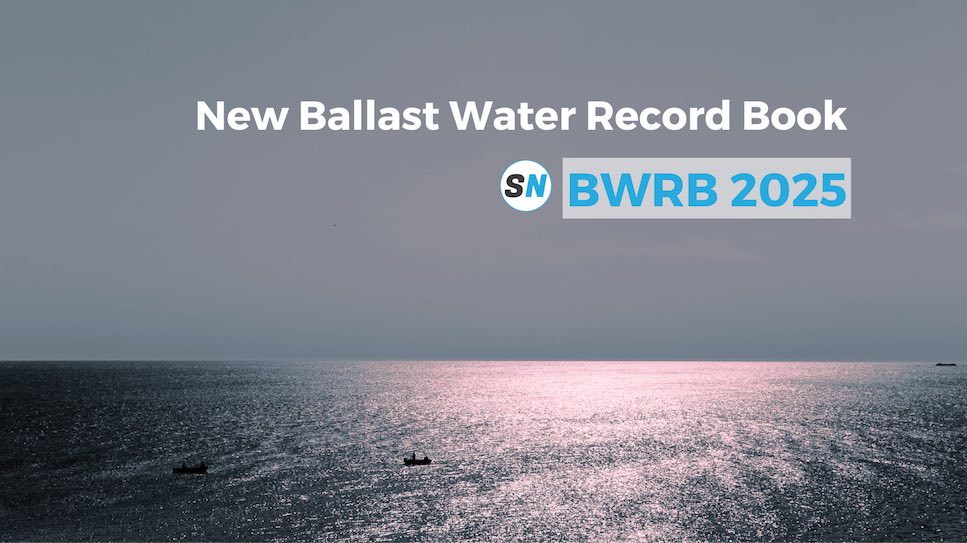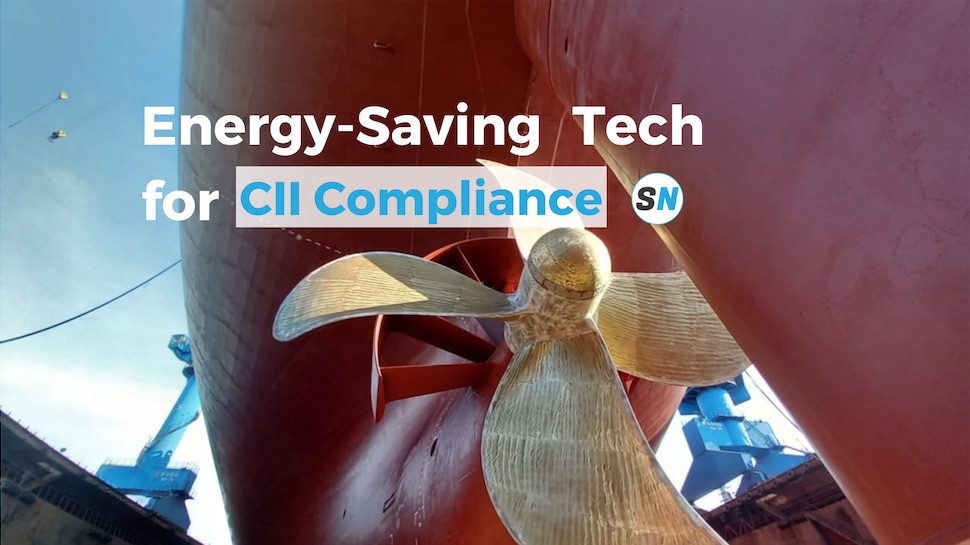28 November 2024
Dark Fleet Alert – LEG 110 Overview
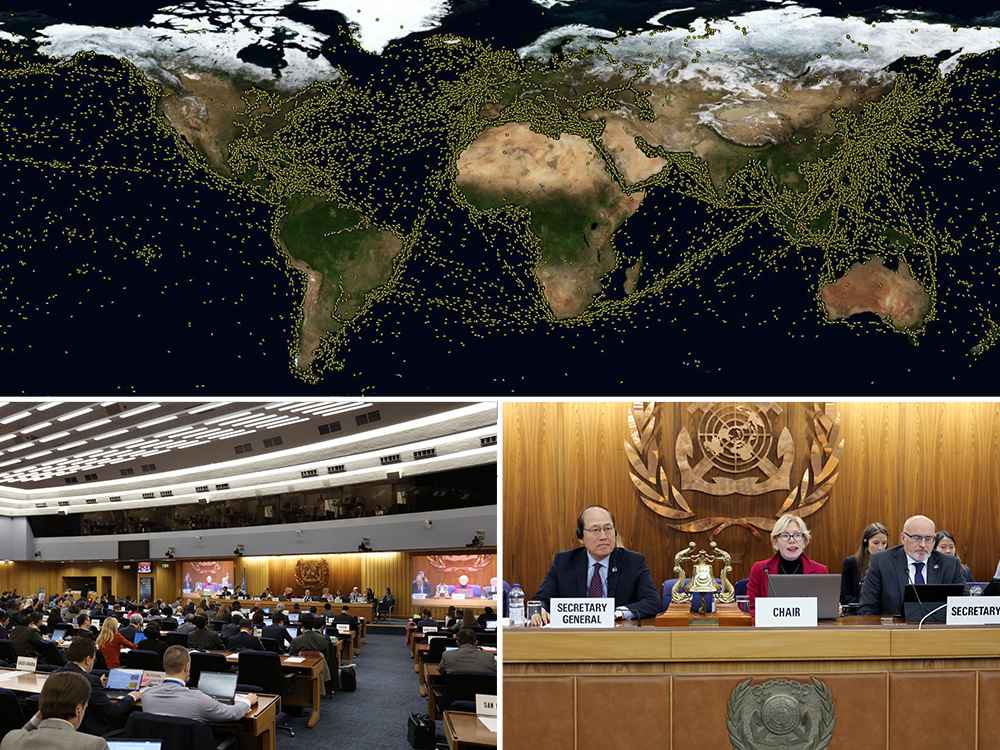
The IMO Legal Committee, LEG 110, recently discussed the alarming rise of ship-to-ship transfers in the open ocean and the dangers posed by tankers in the “dark fleet.” The practice of ship-to-ship transfers has caused widespread concern for the global liability and compensation regime, as it undermines the regulations outlined in MARPOL.
Table of Contents
LEG 110 addressing ship-to-ship oil transfers and tankers “dark fleet”
The dangerous practice of ship-to-ship transfers in the open ocean, as well as the methods used to obscure ship identities and turn off AIS transponders, were discussed by the Legal Committee of the International Maritime Organization (IMO). The committee was meeting for its 110th session at IMO Headquarters in London (21-26 March).
The Committee considered a document submitted to the session which raised awareness of the consequences and concerns for the global liability and compensation regime of the increase in ship-to-ship transfers in the open ocean. The Committee noted that these undermined the spirit of the regulation of ship-to-ship operations of tankers as prescribed by IMO’s International Convention for the Prevention of Pollution from Ships (MARPOL).
The Committee was informed that a fleet of between 300 and 600 tankers primarily comprised of older ships, including some not inspected recently, having substandard maintenance, unclear ownership, and a severe lack of insurance, was currently operated as a ‘dark fleet’ or ‘shadow fleet’ to circumvent sanctions and high insurance costs. This increased the risk of an oil spill or collision.
This could also result in a participating shipowner evading its liability under the relevant liability and compensation treaties (e.g. International Convention on Civil Liability for Oil Pollution Damage (CLC) and the International Convention on Civil Liability for Bunker Oil Pollution Damage (Bunkers Convention)) in the case of other ships, placing also an increased risk on coastal States and the International Funds for Compensation for Oil Pollution Damage.
Following the discussion, the Committee considered that ship-to-ship transfers on the high seas were high-risk activities that undermined the international regime with respect to maritime safety, environmental protection, and liability, and compensation needed to be urgently addressed.
The Committee broadly supported the recommended measures outlined in the original submission, including:
- flag States are called upon to ensure that tankers under their flag adhere to measures that lawfully prohibit or regulate ship-to-ship transfers and that such vessels further adhere to the spirit of the safety requirements in IMO conventions and practice safe shipping standards to minimize the risk of oil pollution;
- flag States should consider requiring that vessels update their ship-to-ship operations manuals to include notifying their flag State when they are engaged in a mid-ocean operation;
- port States should ensure enforcement of the safety and liability conventions on these vessels and ensure that ship-to-ship transfer operations are conducted in accordance with the applicable safety requirements in IMO conventions; and
- should port States become aware of any ships “going dark”, they should consider subjecting such vessels to enhanced inspections as authorized and notifying the respective vessel’s flag administration, as appropriate.
Noting the interest expressed by many delegations in contributing to the drafting of an Assembly resolution on this matter, as proposed by Spain, the Committee invited interested delegations to contact the delegation of Spain in this regard. The IMO Assembly meets from 27 November to 6 December 2023.
The Committee decided that other UN agencies should be informed of the issues discussed and of concerns and challenges raised so that they can also take action for matters under their remit.
Preventing Fraudulent Registration and Registries of Ships
The IMO Committee worked on preventing fraudulent registration and registries of ships, which undermines the regulatory regime. Examples were shared and the committee agreed that access to information is crucial. A database for sharing information on fraudulent registration and registries of ships and validating ships’ certificates was supported. The Secretariat will consult on the options and cost of the database. A correspondence group was created to define “due diligence” for ship registration and report on the abuse of IMO identification number schemes and possible loopholes to LEG 111.
Reviewing UN Convention on Ship Registration
The Committee discussed a proposal to review the 1986 UN Convention on Conditions for Registration of Ships, which aims to set global standards for registering vessels in national registries. The treaty covers important areas such as ownership, accountability, and the role of the flag State. Although the treaty has not yet been enforced, the IMO Secretariat noted that it would be possible for the IMO to begin work on it with the approval of the United Nations General Assembly and the IMO Assembly. The Committee will consider this proposal and decide if it should go forward to the Legal Committee for further action.
In addition, the Committee discussed a report on fraudulent registration and registries of ships and steps to prevent them. The report was conducted by a study group consisting of UNCTAD, WMU, and IMLI.
It is agreed to investigate the correlation between fraudulent registration and other fraudulent activities and to examine the effectiveness of suggested best practices.
Only 31 ship registries, representing 22.75% of the global fleet, responded to the study’s questionnaire. The Committee urged more member states to participate in the study.
Fraudulent use of IMO identification number schemes
The Committee discussed cases of companies fraudulently using IMO identification numbers and related issues. They agreed that more information on the abuse of the IMO number scheme is needed, including its extent and potential loopholes.
Guidelines for port State and flag State authorities on abandonment cases
The rise in reported cases of abandonment of seafarers is a growing concern for the International Maritime Organization (IMO) and the International Labour Organization (ILO). To tackle this issue, the IMO and ILO have jointly developed Guidelines for port State and flag State authorities on how to deal with seafarer abandonment cases. Hence adopted a resolution (LEG.6(110)) providing Guidelines for port State and flag State authorities on how to deal with seafarer abandonment cases.
Note that, the Guidelines set out procedures to be taken by States if a shipowner fails to fulfil their obligations to arrange and cover the cost of repatriation of seafarers, outstanding wages and other contracted entitlements, and the provision of essential needs, including medical care. In these circumstances seafarers are then considered abandoned. These procedures include developing, in cooperation with seafarers’ and shipowners’ organizations, national Standard
Operating Procedures (SOPs) to explicitly define the liabilities and obligations of the competent authority and the roles to be played by the various national stakeholders. These stakeholders include the relevant national seafarers’ welfare boards, shipping agencies, seafarers’ and shipowners’ organizations, seafarer welfare organizations, seafarer recruitment and placement services, and others.
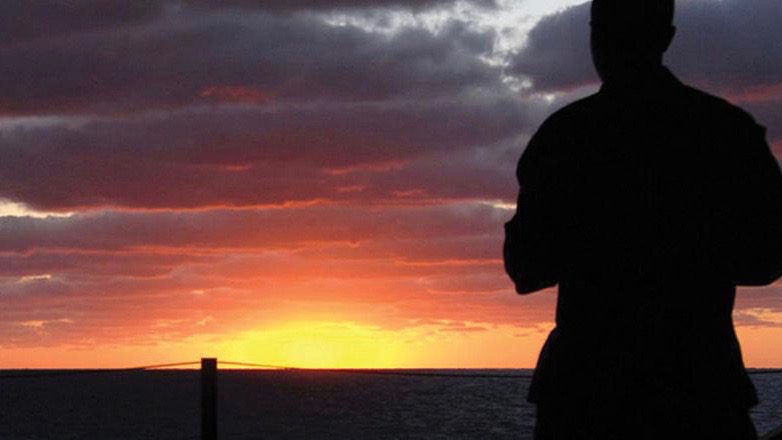
Seafarer abandonment cases rising
Seafarer abandonment cases are on the rise once again. Hence, the legal committee at the IMO put fixes in place to help the stranded crew.
Ship Nerd
Abandonment cases
In 2022, a total of 109 new cases of seafarer abandonment were reported, with only 41 resolved, according to the IMO/ILO joint database. This marks a worrying trend, especially considering the impact of the COVID-19 pandemic on the industry. Since the outbreak, there has been an alarming spike in reported cases, with 95 cases reported in 2021, and only 47 resolved. Approximately 21 of these cases were COVID-19-related, further worsening the crew change situation for seafarers.
To address this issue, the Committee encourages Member States to ratify and effectively implement relevant international instruments and amendments, as well as report incidents of abandonment to the IMO/ILO joint database. The Committee also urges flag and port States to ensure the presence of financial security as required by the Maritime Labour Convention, 2006 Standard A2.5.2, and take appropriate action when it is not in place. Finally, it highlights the link between abandonment and forced labour, calling on States to fulfill their obligations under the MLC, 2006, as amended.
Task Force to review ILO/IMO database of abandonment of seafarers
The Committee invited concrete proposals to LEG 111, including draft terms of reference, for the establishment of a Task Force to review the joint ILO/IMO database of abandonment of seafarers.
Fair Treatment of Detained Seafarers
The Committee discussed proposals for guidelines to ensure fair treatment of seafarers detained on suspicion of committing maritime crimes. A working group developed the draft text for the proposed guidelines, which will be refined in late 2024 by the joint ILO-IMO Tripartite Working Group.
Existing guidelines were adopted in 2006 for the fair treatment of seafarers in the event of a maritime accident. To further this effort, the Committee established a correspondence group and considered establishing a database to record incidents of seafarer detention.
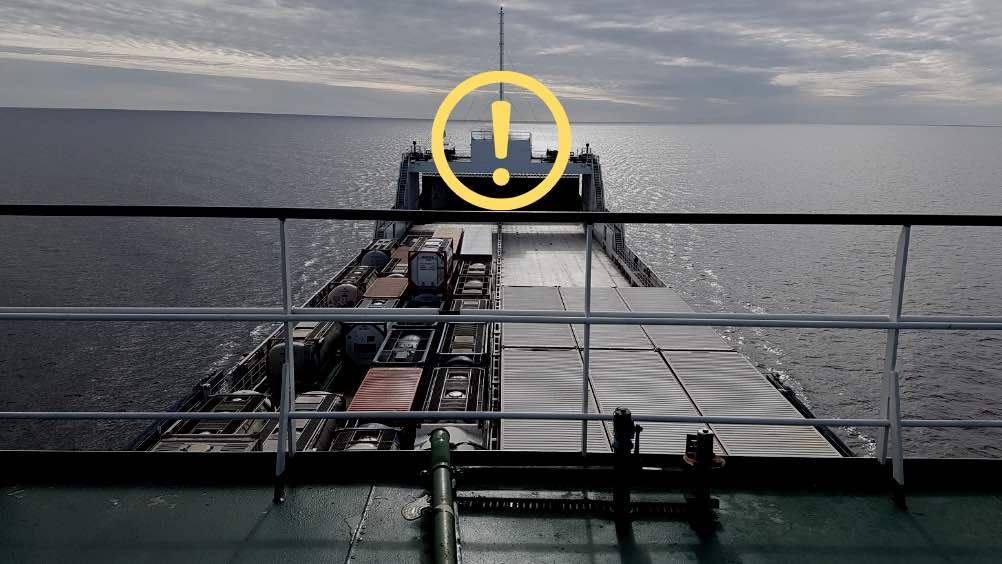
Maritime Fraud: Identify & Report Illegal Activities Onboard
Discover the dark side of the shipping industry and stay informed about the prevalence and harmful impact of maritime fraud.
Ship Nerd
Additionally, the Committee agreed to continue consideration for designated contact points for the coordination of seafarer detention cases, taking into account the UN Convention on Consular Relations, 1963. The proposed guidelines will ensure fair treatment of seafarers in all detention circumstances, promoting the human element in seafaring.
Bunker Convention – Claims manual approved
The Committee approved a Claims Manual for the International Convention on Civil Liability for Bunker Oil Pollution Damage, 2001. The 2001 Bunker Convention was adopted to ensure that adequate, prompt, and effective compensation is available to persons who suffer damage caused by spills of oil when carried as fuel in ships’ bunkers.
Promoting liability and compensation treaties
The Committee approved information pamphlets on the CLC, Bunkers, and Nairobi Wreck Removal conventions, intended to provide information on the treaties and promote their implementation.
Measures to assess the need to amend liability limits
The Committee continued its work to develop methodologies that will help to assess the need to amend liability limits in the various IMO liability and compensation treaties, approving a work plan and base document for future work. The last review of the liability limits was in 2012.
The Committee approved the work plan for the finalization of two methodologies, with a view to completion in the 2024/2025 biennium. The work is focusing initially on the Convention on Limitation of Liability for Maritime Claims, 1976, as amended by the 1996 Protocol (LLMC). A correspondence group was established.
Revised Guidelines for Ships in Need of Assistance
The Committee approved the updated Guidelines for Places of Refuge for Ships in need of assistance. The guidelines were first adopted in 2003 and have been revised to reflect changes in the global maritime industry.
The revised guidelines aim to provide guidance for coastal states, ship masters, operators, and salvors on how to handle a ship in need of assistance seeking a place of refuge. The guidelines do not address the rescue of people in distress at sea.
One notable change is the addition of a section on media management, urging states to have training and resources in place for dealing with media inquiries when managing a ship in need of assistance seeking a place of refuge.
Shipping and seafarers affected by Russian Federation’s invasion of Ukraine
The Committee is concerned about the impact of the Russian Federation’s invasion of Ukraine on shipping in the Black Sea, the Sea of Azov, and the Kerch Strait. The safety of commercial vessels and seafarers is at risk.
The Committee supports the implementation of UNGA Resolution A/RES/ES-11/5 and the establishment of an international register to document the damages caused by the invasion.
The IMO Secretariat will assess damages to commercial vessels, ports, port facilities, maritime training institutions, and the marine environment in Ukraine, as well as impacts and damages to seafarers. The findings will be presented to the IMO Council (C 129) for consideration.
The Committee demands that the Russian Federation ceases its use of force against Ukraine and withdraws its troops. It is also urged to ensure the unhindered and free passage of vessels in the affected areas.
Additionally, the Committee issued a circular on the impact of the situation in the Black Sea and the Sea of Azov on insurance or other financial security certificates. (LEG.1/Circ.12).
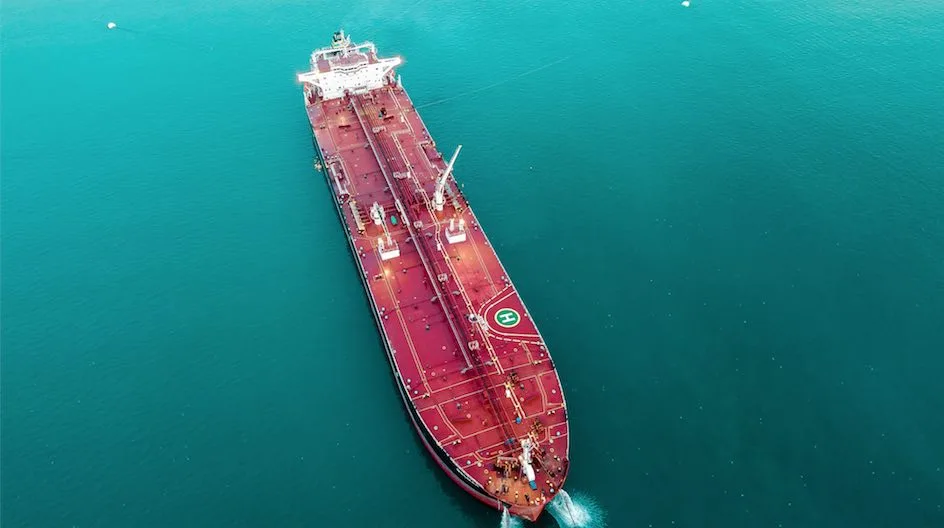
Ukraine Cracks Down on Greek Owners Trading Russian Oil
Greek owners of tankers have been hit by Ukraine’s efforts to stop the movement of Russian oil. Find out more in this article.
Ship Nerd
The HNS Convention: Closing the Gap for Liability and Compensation
Join the IMO Workshop on the 2010 HNS Convention, advises the Committee. The Convention, aimed at addressing liability and compensation for damage caused by hazardous and noxious substances transported by sea, is the final piece needed for a comprehensive international regime.
Once ratified, the Convention will provide coverage for pollution, fire, and explosion damage, as well as loss of life, personal injury, and property damage. The Convention establishes the HNS Fund, financed by receivers of HNS cargoes, to pay compensation once a shipowner’s liability is exhausted.
Although adopted in 2010, the Convention has yet to enter into force due to insufficient ratification. The Committee welcomed the commitments of Belgium, France, and the Netherlands towards ratification and expected their deposit of instruments by 2024.
Currently, the treaty has only six Contracting States, with six more needed for entry into force. The Committee calls for Member States to take action towards ratification and contribute towards closing the gap for liability and compensation.
Maritime Autonomous Surface Ships (MASS)
The Committee noted the outcome of the first session of the joint Maritime Safety, Legal and Facilitation Committees (MSC-LEG-FAL) Working Group on MASS. The JWG has been established as a cross-cutting mechanism to address common high-priority issues identified by the regulatory scoping exercises for the use of MASS conducted by the three Committees.
The Committee endorsed the work plan for the Working Group, including convening two sessions of the Working Group in 2023.
The Committee has previously completed its regulatory scoping exercise on Maritime Autonomous Surface Ships (MASS) (download here).
Convention on the International Effects of Judicial Sales of Ships
The Committee welcomed the adoption of the Convention on the International Effects of Judicial Sales of Ships, on 7 December 2022, by the General Assembly of the United Nations.
The Convention has 23 Articles. Its central provision is contained in article 6 which states: “A Judicial sale for which a certificate of judicial sale referred to in article 5 has been issued shall have the effect in every other State Party of conferring clean title to the ship on the purchaser.” Various criteria need to be satisfied for the Convention to apply and for a judicial sale to have international effects, notably compliance with the notification criteria contained in article 4 and the issuance of a certificate of judicial sale by the court where the judicial sale takes place in accordance with article 5. Per Article 11, the Organization will serve as the repository for notices of judicial sales, using the GSIS system.
The signing ceremony will take place in Beijing in September 2023.
See Also

MEPC 79 – New amendments & IMO GHG Strategy
What are the new amendments and GHG strategy that resulted from the IMO MEPC 79? This is everything you need to know.

